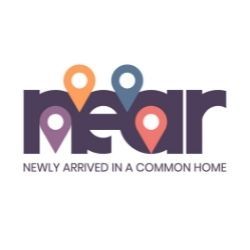The distinguished academic will assume the role of Head of Data Science and in collaboration with Centre’s researchers and staff, is expected to make an invaluable contribution the its mission and work.
Through his expertise, Dr. Kyriakides will guide the actions and work of CARDET, contributing to the design of substantiated and detailed policy propositions and programs. The appointment of Dr. Kyriakides in our research team is another concrete manifestation of CARDET’s ongoing close collaboration with Yale’s School of Public Health, part of the Memorandum of Cooperation the two institutions have in the last five years.
Dr. Kyriakides will support the Center’s research team in large-scale projects related to collecting, managing, analysing, and explaining data and results. At the same time, he will participate in the development of synergies and collaborations with research institutes and institutions in the wider region and worldwide, contributing to CARDET’s efforts to become the leading independent research and development center in the Euro-Mediterranean region.
Dr. Tassos C. Kyriakides is an Associate Research Scientist at the Yale Center for Analytical Studies, Yale School of Public Health and the Director of the West Haven Cooperative Studies Program, Coordinating Centre. He has completed his B.Sc. as a Fulbright Scholar at UCLA (Biochemistry; 1993) and received his Ph.D. at the Yale School of Public Health (Epidemiology of Infectious Diseases; 1999). As a faculty member at the Yale Center for Analytical Sciences (Yale School of Public Health), he helps design and collaborates on numerous clinical research projects. He is the Director at the Department of Veterans Affairs Cooperative Studies Program (VACSPCC-West Haven, CT), a clinical trials data coordinating center, where he has worked the last 20+ years on pivotal trials in: HIV/AIDS treatment, surgery and PTSD.
Charalambos Vrasidas, Executive Director at CARDET, stated: “We are elated and honored to have an academic of Dr. Kyriakides’ caliber as part of our research team. He’s an internationally renowned scientist with rich knowledge and know-how, with whom we share the same values and ambitions. I am confident that Dr. Kyriakides will play an essential and pivotal role in the continuous development of CARDET and the achievement of its goals, as well as have a special and multifaceted contribution to our efforts to make a positive contribution to society through education, innovation, research and development “.
About CARDET
CARDET is one of the leading non-profit centers for development in the Mediterranean region, with global expertise in project design and implementation, social inclusion, human rights and skills development. The Center brings together an international team of experts with decades of global expertise in the design, implementation and evaluation of projects, with an emphasis on social justice, development and human rights. It employs 50 full-time and part-time professionals specializing in education, digital learning, development sports, social sciences, social entrepreneurship and evaluation.












